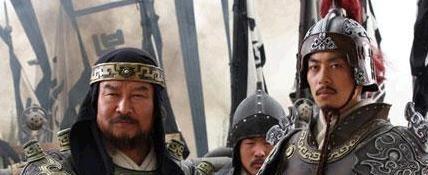The Battle of Baiju was a long-range offensive battle in 506 BC in which 30,000 Wu troops led by Wu Wang Lu lu penetrated deep into the Chu state, defeated the main force of the Chu army at Baiju, and then occupied the capital of Chu. In the war, the Wu army was flexible and mobile, and won the victory because of the enemy's use of troops, with the tactics of roundabout attack, retreating tired enemy, seeking opportunities for decisive battles, and pursuing far-reaching pursuits. King Chu Zhao fled in time during the war, he first fled to Yunmeng, and then to the state of Yun, and the brother of Duke Yun attempted to murder King Chu Zhao, so King Chu Zhao, together with Duke Yun, went into exile in Suiguo before settling down. Later, Shen Baoxu went to the Qin state to seek reinforcements, and with the cooperation of the remnants of the Chu army, the Qin-Chu coalition army repelled the Wu army and recaptured the capital, and King Chu Zhao returned to China.

The cause of the Battle of Baiju was because the Chu state was hegemonic, the Chu state destroyed countless countries, and the barbaric expansion caused strong dissatisfaction from the overlord Jin state, and it was with the support of the Jin state that the Wu state was able to attack Chu. In the spring of 506 BC, at the request of cai guo, the princes of the eighteen kingdoms of Jin, Qi, Lu, Song, Cai, Wei, Chen, Zheng, Xu, Cao, Ju, Qiu, Dun, Hu, Teng, Xue, Qi, and XiaoYi conspired to destroy Chu in the Mingling Alliance. In the fourth month of the same year, the State of Jin instructed the State of Cai to send troops to attack the Chu vassal Shen Guo. The State of Chu sent troops to besiege the State of Cai in the autumn of the same year, and the State of Jin instructed the State of Wu to attack Chu to save Cai. The Wu monarchs believed that the opportunity to attack Chu with all their might had arrived, so in the name of saving Cai, they secretly bypassed the Dabie Mountains through Huai Dao and burst into Chu territory from the northeast where Chu was weakly defended, and attacked the Chu state.
In the winter of 506 BC, King Lu of Wu personally took command, with Sun Wu and Wu Zixu as generals and His brother-in-law As the vanguard, pouring 30,000 water and land divisions across the country, taking warships, and going up the Huai River to Cai Province. The State of Chu withdrew from the State of Cai, and the three kingdoms of Wu, Cai, and Tang formed a coalition to directly attack the capital of Chu, and three battles and three victories in the middle of the way, and the two large armies met at Baiju. During the battle, the probability of 5,000 elite Wu soldiers directly attacked the chu army's middle position, and the Commander of the Chu State often abandoned the army and fled, and the Chu army was defeated. After the main army of the Chu state collapsed, King Chu Zhao abandoned the country and fled, and the Wu army invaded Yingdu. After the Wu army captured the capital of Ying, it slaughtered the city, burning and looting everywhere, which aroused the hatred of the Chu people.
After King Chu Zhao returned to China, he did not punish the ministers, but rewarded them generously, and the author believes that there are three reasons.
First, in the war, King Chu Zhao abandoned the country and fled, if he wants to be held responsible, he is the first person responsible, if King Chu Zhao insists on punishing the ministers, maybe he will not become the king of Chu.
Second, the State of Chu implements a state system of joint rule of clans, and if the king wants to punish ministers with real power, these ministers have the ability to counterattack the King of Chu, and many people can abolish the king and establish another king under the union of many people; the territory of the Chu royal family is the largest, but the territory of other clans is also many, and the royal territory is the most seriously injured in the war.
Third, although the battle of Baiju was lost, in the end the Chu state still won, and if it won, don't pursue the responsibility, otherwise everyone will disperse unhappily, and the seeds of infighting will be planted.